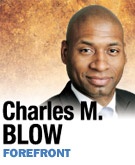Subscriber Benefit
As a subscriber you can listen to articles at work, in the car, or while you work out. Subscribe Now
 “Making the Bus Monitor Cry.”
“Making the Bus Monitor Cry.”
That’s the name of the video. It’s more than 10 minutes long, but if you make it through more than three of them with your eyes not getting misty and your blood not boiling then you are a rock, or at least your heart is.
The video shows Karen Klein, a 68-year-old grandmother and bus monitor in upstate New York, being relentlessly tormented by a group of young boys.
They hurl profanities. One asks for her address because he says he wants to go urinate on her door. One boy tells her that she doesn’t have a family because “they all killed themselves because they didn’t want to be near you.” (Her eldest son committed suicide.) One suggests that if he were to stab her, his knife would go through her “like butter.”
Since the video was posted to YouTube, there has been an outpouring of shock.
Klein has made the media circuit recounting her ordeal and some of the children have apologized.
But what, if anything, does this say about society? Many things one could argue, but, for me, it is a remarkably apt metaphor for this moment in the American discourse in which hostility has been drawn out into the sunlight.
Those boys are us, or at least too many of us: America at its ugliest. It is that part of society that sees the weak and vulnerable as worthy of derision and animus.
This kind of behavior is not isolated to children and school buses and rural communities. It stretches to the upper reaches of society—our politics and our pulpits and our public squares.
Whether it is a Republican debate audience booing a gay soldier or Rush Limbaugh’s vicious attack on a female Georgetown law student or Newt Gingrich’s salvos at the poor, bullying has become boilerplate. Hiss and taunt. Tease and intimidate. Target your enemies and torture them mercilessly. Maintain primacy through predation.
Traditionally inferior identity roles are registered in a variety of ways. For Klein, she was elderly and female and not thin or rich. For others, it is skin color, country of origin, object of affection or some other accident of birth.
The country is changing, and that change is creating friction: between the traditional ruling classes and emerging ones; between traditional social structures and altered ones; between a long-held vision of an American ideal and growing reality that its time has passed.
And that change is coming with an unrelenting swiftness.
In May, the Census Bureau reported that for the first time in the country’s history, minority births outnumbered those of whites.
Furthermore, there are now more women in college than men, and a Pew Research Center poll published in April found that, “in a reversal of traditional gender roles, young women now surpass young men in the importance they place on having a high-paying career or profession.”
A Gallup poll released last month found that a record number of people (54 percent) say they would vote for an atheist for president, and a Gallup poll last month found that more people support same-sex marriage than oppose it.
These dramatic shifts are upending the majority-minority paradigm and are making many people uneasy.
The Republican-Democratic divide is increasingly becoming an all-white/multicultural divide, a male/female divide, and a more religious/less religious divide—the formers the traditional power classes, and the latters the emerging ones.
This has led to some increasingly unseemly attacks at traditionally marginalized groups, even as—and possibly particularly because—they grow more powerful.
Seldom is power freely passed and painlessly surrendered, particular when the traditionally powerful see the realignment as an existential treat.
The bullying on that bus was awful, but so is the bullying in our politics. Those boys were trying to exert power over a person placed there to rein them in. But bullying is always about power—projecting more than you have in order to accrue more than your share.
Sounds like the frightened, insecure part of American society.•
__________
Blow is a New York Times columnist. Send comments to [email protected].
Please enable JavaScript to view this content.
